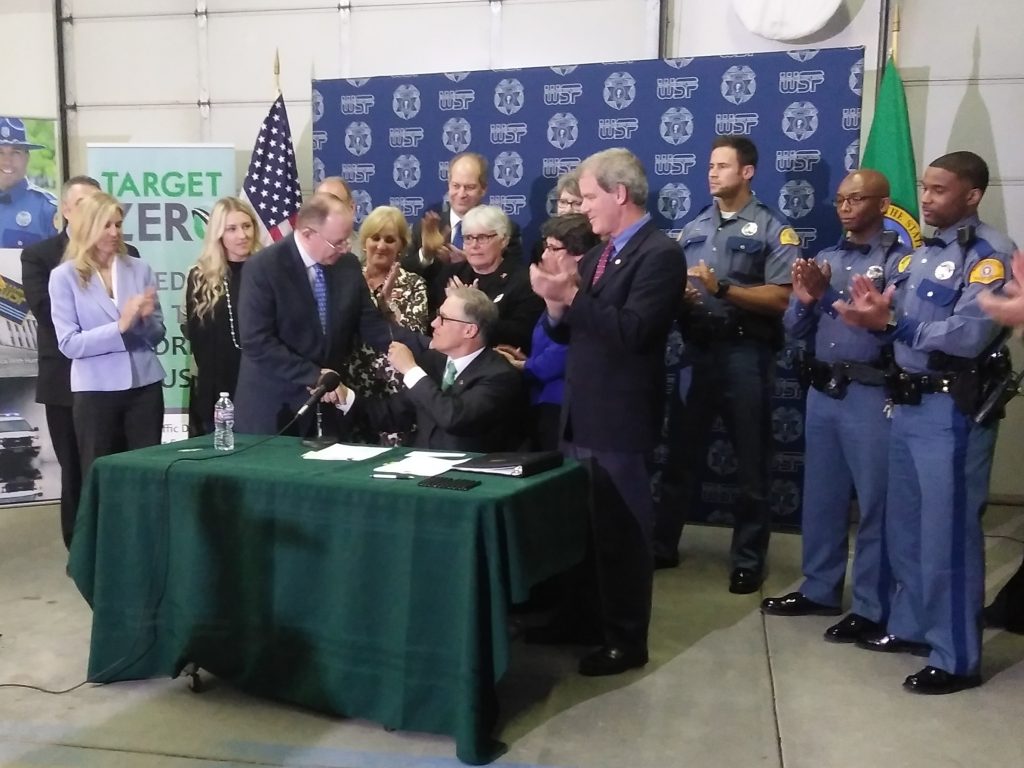OLYMPIA – A bill making the 4th DUI a felony in the state of Washington was signed into law Tuesday following more than four years of work by lawmakers to toughen laws against impaired driving.
Senate Bill 5037, sponsored by Sen. Mike Padden, R-Spokane Valley, sends impaired drivers to prison when they are convicted of driving under the influence for the fourth time within 10 years. Until now, Washington has required five convictions, the weakest standard of any state with a felony DUI law.
Gov. Jay Inslee signed the bill at a Tacoma ceremony, flanked by Padden and numerous others who have lobbied for the bill, including prosecutors, transportation and law enforcement officials, representatives of Mothers Against Drunk Driving and families of DUI victims.
“Passing this bill has been one of the biggest challenges of my legislative career,” said Padden, chair of the Senate Law and Justice Committee. “We couldn’t have done it without the help and support of those who have been affected, in so many ways, by the tragedies caused by impaired driving.”
The state Senate passed the bill six times since the 2015 session, unanimously every time, but House leaders did not permit a floor vote until this year. Just before adjournment of the Legislature’s regular session, news broke that a Renton man was arrested in Seattle for his 11th DUI. The House quickly voted to approve the measure 85-11.
Also signed by the governor Tuesday was House Bill 1614, which tightens rules associated with DUI arrests and related procedures. The new law allows trained law enforcement officers and jail employees to draw blood for DUI investigations, a proposal offered by Padden as a separate bill earlier in this year’s session.
Tuesday’s bill-signing caps an effort that began four years ago, when a spate of deadly traffic accidents prompted lawmakers to pass a bill sponsored by Padden that lengthened DUI sentences, stiffened other DUI laws, and created a task force to consider further revisions. Even then, Padden called for a tougher felony DUI statute.
“We had to convince the Legislature our laws were too lenient on repeat offenders,” Padden explained. “For most people, a DUI arrest is a signal that they need to change their behavior. But repeat offenders have ignored that wake-up call. Longer sentences will help keep them off the road.”
Of the 45 states with felony DUI laws, Washington was an outlier, requiring four prior misdemeanor convictions before the fifth offense could be charged as a felony. Most others allow felony prosecutions on the third offense, including Washington’s neighboring states of Oregon and Idaho.
Felony charges allow offenders to be sent to state prisons, rather than serving shorter misdemeanor sentences in county jails. Under the new law, an offender with no prior felony convictions would face a standard sentencing range of 13 to 17 months.











